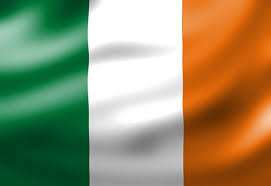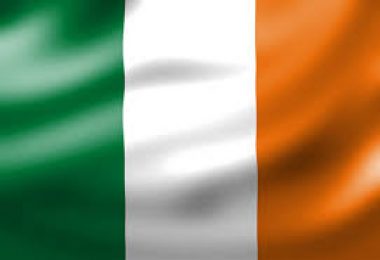Irish
Brief Overview
Junior Cycle Irish builds upon the language developed during primary education. The learner’s vocabulary is both reinforced and enriched at this stage and the language skills (listening, speaking, reading, spoken interaction and writing) are further developed. Emphasis is placed on promoting and developing awareness: language awareness, cultural awareness as well as student self-awareness as a language learner.
There are currently two Irish syllabuses at junior cycle. In Irish-medium schools, Irish is the working language of the school and Irish L1 is taught as a subject. In English-medium schools, English is the working language of the school and Irish L2 is taught as a subject.
A candidate may take the examination at one of two levels i.e. Higher Level or Ordinary Level.
Key skills
| Being creative |
Learning creatively |
As language users, students will have opportunities to explore a range of aspects relating to language and culture. They will use various means, including digital technology, to explore opinions and to express ideas creatively. |
| Being literate |
Expressing ideas clearly and accurately
Exploring and creating a variety of texts, including multi-modal texts |
As students engage with a wide range of texts (including multi-modal texts) they will develop a more critical awareness of how language works. This will enable them to make informed language choices to express themselves, and to find, use and share ideas. By participating in interactive communication tasks, students will develop the foundations of spoken interaction: listening and speaking skills. Students will plan, draft and write in a range of genres demonstrating an increased understanding of a target group and style. |
| Being numerate |
Seeing patterns, trends and relationships |
Students will undertake language learning activities such as gathering information from surveys and questionnaires in class. Students will use innovative digital technology to find, gather and interpret information, and communicate that information through description or presentation.
They will engage with quantifying concepts and elements of numeracy or functional measuring. They will recognise language patterns in texts, including literary texts. |
| Communicating |
Using language |
Students will improve their communication skills by using language that relates to their own lives and to life in general. They will gain experience in presenting information and opinions for themselves or on behalf of a group through Irish. |
| Managing information and thinking |
Reflecting on and evaluating my learning |
Students will consider and evaluate feedback received through self-assessment or through peer assessment (from other students) and feedback from teachers to find ways of being more accurate in their own language production (written and spoken) and being more aware of themselves as language learners. |
| Managing myself |
Setting and achieving personal goals |
Students will understand the importance of reflection, organisation and clarity to achieve goals effectively and on time when dealing with and creating Irish texts. |
| Staying well |
Being positive about learning |
Students will develop a positive attitude towards language learning when engaging with various language tasks and activities and when reflecting on themselves as language learners. |
| Working with others |
Learning with others |
Students will consult and co-operate with their peers and with others for the benefit of both their own and others’ learning. Students will understand how important and beneficial it is to listen and respect others while completing a wide range of activities and tasks. |
|
Examination information: CBA’s and Assessment Task
- A written assessment task based on literature studied. This will be taken from a portfolio of work which has been built up over Second and Third year.
- An oral communication task also based on literature studied in Second and Third year.
Both tasks are assessed in Third Year
Both are assessed in school.
An assessment task will follow the communicatication task (10%) and is corrected by the department.
The Final Examination
The Final Examination will be set by the State Examinations Commission at two levels: Higher and Ordinary. This examination will be held at the end of third year.
Students will sit a two-hour examination in which they will be asked to demonstrate their linguistic abilities in various language and literary tasks demanding personal interactive communication. Personal/communicative responses to literary texts will be assessed in the Final Examination for students sitting the Higher Level paper
Listening task – 10%
Reading and writing task – 80% |
| Students develop a skill for reading, enjoying and understanding authentic texts and are given an opportunity to think, speak and write independently, very much inspired by the literary texts which have enhanced the learning in this cycle.
|
| Link to syllabus
https://www.curriculumonline.ie/Junior-cycle/Junior-Cycle-Subjects/Gaeilge/Gaeilge-Home |
| Department Members
Claire Burke
Deirdre O Shea
Orlaith Ringrose
Darina Sheridan |
| Textbooks for Current cohort for Relevant Year groups
Mol an Oige 1, 2 & 3 |
| Other required material:
Portfolio
Means to make a voice recording
Access to you tube for listening to accents and possible background music in communication task. |
| Useful Websites and Online Resources:
Tuairisc.ie |

